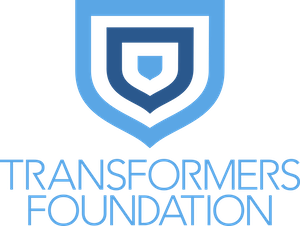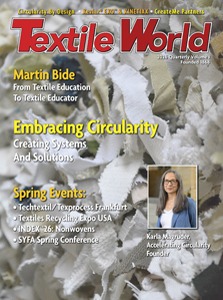 NEW YORK CITY — July 22, 2025 — In response to rising concerns over vague sustainability claims and the growing need for credible environmental data in the denim industry, Transformers Foundation — with support from NDL – Naveena Denim Ltd. and the Indigo Council — has launched “A Reference for Water Consumption During Indigo Dyeing” — the first cross-industry benchmark for water usage in indigo dyeing processes.
NEW YORK CITY — July 22, 2025 — In response to rising concerns over vague sustainability claims and the growing need for credible environmental data in the denim industry, Transformers Foundation — with support from NDL – Naveena Denim Ltd. and the Indigo Council — has launched “A Reference for Water Consumption During Indigo Dyeing” — the first cross-industry benchmark for water usage in indigo dyeing processes.
This inaugural study establishes baseline and best-in-class water use metrics for both rope and slasher dyeing systems, based on real-world data collected from seven mills across Pakistan, Türkiye, Italy and China. Developed through months of collaboration with dye experts, mill technicians, machinery manufacturers, and chemical suppliers, the report is designed to bring clarity and consistency to one of denim’s most debated sustainability topics.
The study finds that water consumption during post-dye washing and rinsing varies significantly between rope and slasher dyeing methods. However, it also demonstrates that with the right practices in place, water usage can be substantially reduced. The findings emphasize the importance of accurate monitoring, consistent process control, and smart water management in improving dye efficiency and reducing overall environmental impact.
The Indigo Council includes a coalition of denim industry leaders: Candiani Denim, Crescent Bahuman, Diamond Denim, Naveena Denim, Soorty, Orta, and Advance Denim. Machinery support was provided by Morrison Textile Machinery and Karl Mayer, with additional technical oversight from bluesign® and DyStar.
The launch of this report arrives at a critical moment. With the EU Green Claims Directive, the UK Green Claims Code, and multiple lawsuits in the US targeting misleading environmental claims, stakeholders across the denim supply chain are being called to back sustainability statements with measurable, transparent data. This paper offers a tool to do just that — giving brands, mills, and innovators a shared benchmark for water usage and an evidence-based way to compare new dye technologies or chemical systems.
As the report notes, this is not about choosing rope vs. slasher or prescribing one technology over another. Instead, it is about establishing a clear and adaptable framework that helps the entire industry move beyond unsupported claims and toward meaningful change.
The Indigo Council and Transformers Foundation hope this initiative inspires other industry stakeholders — especially mills and suppliers — to come together, share data, and co-develop open-source tools that strengthen sustainability from the supply side outward.
This work is emblematic of what’s possible when commercial competitors collaborate for shared progress.
Andrew Olah, founder at Transformers, said: “One of the most encouraging findings in this report is the willingness of mills to work together and share data transparently, a testament to Transformers culture of collaboration. It’s a powerful reflection of the strength and integrity of our supply chain. Prior to this report, claims like ‘80 percent less water’ have frequently gone unchallenged. Without transparency and specificity, such figures become marketing jargon: just enough to sound responsible, never enough to be meaningful. Real sustainability requires real data, and this report provides exactly that.”
Rashid Iqbal, executive director at Naveena NDL, said: “Naveena NDL Denim has been focused on optimizing and innovating in denim production from the very beginning. That’s why we’re proud to collaborate on this industry-first benchmark for water consumption. Setting industrial standards prevents sustainability from becoming a buzzword, and keeps brands and suppliers accountable.”
Paolo Leidi, Technical director at Transformers, said: “This report marks a historic first in the denim industry, bringing together mills from across the globe to share verified, third-party data on actual water use. Our goal was not to rank mills, but to equip brands, designers, and retailers with meaningful benchmarks, enabling them to assess how seriously a mill is addressing water reduction. Most importantly, this report proves that open, honest collaboration is possible even among competitors when it comes to critical sustainability issues. We hope it sets the stage for ongoing cooperation across the supply chain, building a more transparent and responsible industry.”
Posted: July 24, 2025
Source: Transformers Foundation




